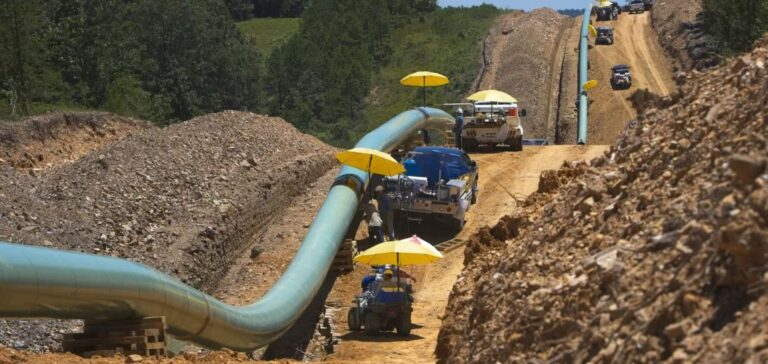US President Donald Trump has expressed his desire to see the immediate resumption of the Keystone XL pipeline construction, a controversial project abandoned in 2021 during the tenure of his predecessor, Joe Biden. In a recent statement, Trump invited the Canadian company TC Energy, originally responsible for the project, to return and complete the infrastructure. He assured that his administration would facilitate the necessary permits for a rapid start of the works.
A project with multiple setbacks
Proposed in 2008, the Keystone XL project aimed to transport 830,000 barrels of oil per day from the oil sands of Alberta, Canada, to US refineries in Nebraska. However, it faced significant opposition from environmentalists, American landowners, and Indigenous tribes, delaying its progress. In 2015, President Barack Obama rejected the project, a decision reversed in 2017 by Donald Trump during his first term. Nevertheless, in 2021, President Joe Biden revoked the construction permit, leading TC Energy to definitively abandon the project in June of the same year.
Challenges for a possible revival
Reviving the Keystone XL project presents several major challenges. Since its cancellation, the economic landscape has changed, with US oil production reaching record levels and new export routes emerging for Canadian oil. Additionally, TC Energy has dismantled some already constructed sections and redistributed materials, making a restart complex. Any attempt to revive the project would require securing new local permits, renegotiating land rights, and addressing ongoing opposition from environmental groups and local communities.
Political and economic implications
Despite these obstacles, the Trump administration appears determined to promote the project, viewing it as a strong symbol of its commitment to energy infrastructure and US energy independence. This initiative is part of a broader effort to reverse the energy policies of the previous administration, particularly by facilitating oil and gas infrastructure projects. However, industry experts believe that the likelihood of the project moving forward remains low, given the current technical, economic, and legal challenges.






















